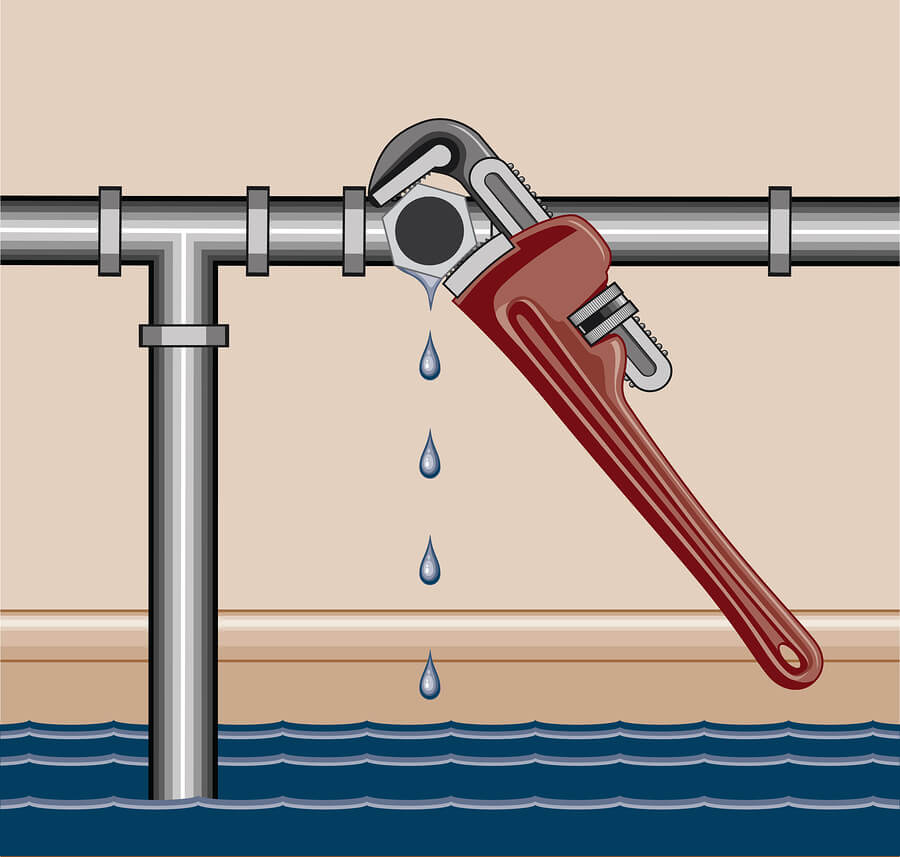How to Avoid the Six Most Common Water Leaks in Your Home
How to Avoid the Six Most Common Water Leaks in Your Home
Blog Article
They are making a number of great points relating to How to detect water leaks in your home as a whole in the article on the next paragraphs.

Leaks not just cause waste of water but can additionally trigger unnecessary damage to your home and also advertise undesirable natural growth. Water leaks might go undetected since many of the pipework in our house is hidden. By looking as well as comprehending for daily situations that create leakages, you can safeguard your home from future leakages as well as unnecessary damage. Today, we will certainly take a look at six leakage triggers that may be creating your pipelines to trickle.
Elbowing in roots
Many water leakages begin outside the house rather than inside it. You could notice wet spots or sinkholes in your yard, as well as that could mean that tree roots are attacking water lines causing water to leak out.
Rusty water systems
As time goes by, your plumbing system ages and also corrosion such as rust may begin eating away the pipes. This may be the source of discoloration or warping on your water pipes. This requires an evaluation with your plumber quickly. Consider replacing the pipes considering that they are at a greater threat of corrosion than the newer designs if our plumbing system is old.
Defective Pipe Joints
The point at which your pipes connect is often the weakest link in the waterline. Pipeline joints can weaken over time, leading to water leakages. The bulk of pipeline joints are not quickly visible. If you have noisy pipes that make ticking or banging noises, especially when the hot water is turned on, your pipe joints are possibly under a great deal of stress. It is suggested to have your plumber evaluate your system annually.
Immediate temperature level modifications.
Extreme temperature level adjustments in our pipes can cause them to expand and also get all of a sudden. This growth and tightening might cause cracks in the pipelines, specifically if the temperature are below freezing. If you maintained an eye on exactly how your plumbing functions, it would be best. The visibility of the previously mentioned conditions often indicates a high threat.
Poor Water Connectors
At times, a leakage can be created by loose tubes and pipelines that provide your devices. In situation of a water links leak, you might notice water running straight from the supply line or pools around your home appliances.
Clogged Drains
Blocked drains pipes might be frustrating and inconveniencing, however they can occasionally end up triggering an overflow leading to burst pipelines. Maintain removing any products that may go down your drains that can obstruct them to avoid such troubles.
All the above are sources of leakages however not all water leakages arise from plumbing leakages; some leakages might come from roofing leakages. All leaks should be repaired right away to stay clear of water damages.
Leakages not only trigger waste of water however can additionally create unneeded damages to your residence and promote undesirable natural development. By recognizing and also looking for everyday circumstances that trigger leaks, you can secure your house from future leakages as well as unneeded damages. Today, we will look at six leak causes that may be causing your pipelines to trickle.
At times, a leak can be caused by loose hoses and also pipelines that provide your home appliances. In situation of a water links leakage, you might discover water running directly from the supply line or puddles around your devices.
How To Check For Water Leak In Your Home
How To Check for Leaks
The average household's leaks can account for nearly 10,000 gallons of water wasted every year and ten percent of homes have leaks that waste 90 gallons or more per day. Common types of leaks found in the home are worn toilet flappers, dripping faucets, and other leaking valves. These types of leaks are often easy to fix, requiring only a few tools and hardware that can pay for themselves in water savings. Fixing easily corrected household water leaks can save homeowners about 10 percent on their water bills.
To check for leaks in your home, you first need to determine whether you're wasting water and then identify the source of the leak. Here are some tips for finding leaks:
Take a look at your water usage during a colder month, such as January or February. If a family of four exceeds 12,000 gallons per month, there are serious leaks.
Check your water meter before and after a two-hour period when no water is being used. If the meter changes at all, you probably have a leak.
Identify toilet leaks by placing a drop of food coloring in the toilet tank. If any color shows up in the bowl after 10 minutes, you have a leak. (Be sure to flush immediately after the experiment to avoid staining the tank.)
Examine faucet gaskets and pipe fittings for any water on the outside of the pipe to check for surface leaks.
Undetected water leaks can happen without the home or business owner even realizing. If you suspect a water leak, but not able to find the source. It is time to contact a professional water leak detection service, The Leak Doctor.
How To Find a Water Leak In Your Home
https://www.leakdoctor.com/blog/How-To-Check-For-Water-Leak-In-Your-Home_AE197.html

Do you really like reading up on How Fast Water Damage Can Ruin Your Home? Place a comment down below. We will be interested to find out your responses about this blog entry. We hope that you visit us again in the future. So long as you liked our page kindly do not forget to pass it around. Thanks a lot for your time. Come back soon.
Website Report this page